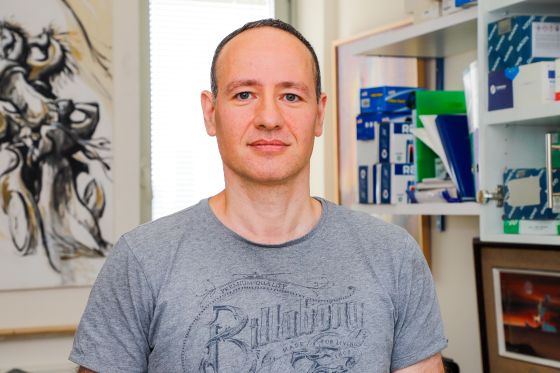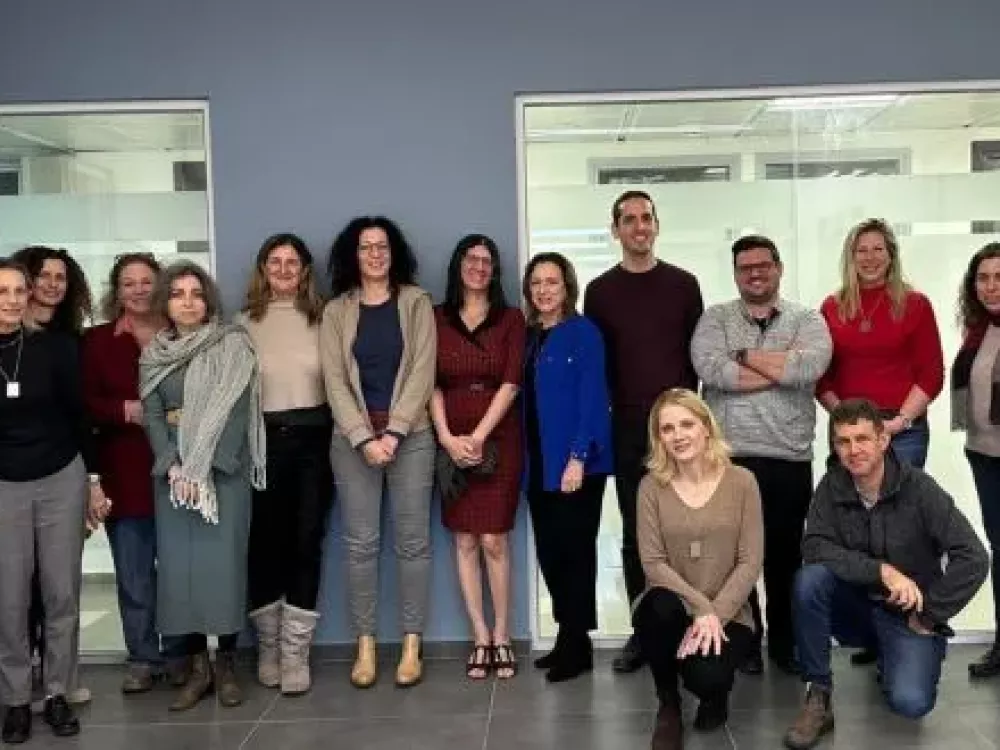
The Silent Prophets
TAU researchers prove that silent mutations can predict development of cancer cells.
Our genome, our complete set of genetic instructions, contains mutations that can change the sequence of amino acids in the coded proteins. Since these proteins are responsible for the various cell mechanisms, such mutations are involved in turning healthy cells into cancer cells. In contrast, there are so-called ‘silent mutations’ that don’t change the sequence of amino acids in proteins. In recent years, it has been shown that silent mutations, both in and out of the cell’s genetic coding region, can affect gene expression, and may be associated with the development and spread of cancer cells. However, the question of whether silent mutations can help identify cancer types or predict patients’ chances of survival has never before been investigated with quantitative tools. Researchers from TAU’s Department of Biomedical Engineering and the Zimin Institute for Engineering Solutions Advancing Better Lives have been able to predict both the type of cancer and patients’ survival probability based on silent mutations in cancer genomes – a proof of concept that may well save lives in the future.
Predictive Power Similar to That of ‘Ordinary’ Mutations.
The groundbreaking study, led by Prof. Tamir Tuller and research student Tal Gutman, is based on about three million mutations from cancer genomes of 9,915 patients. The researchers attempted to identify the type of cancer and predict survival probability 10 years after the initial diagnosis – on the basis of silent mutations alone. They found that the predictive power of silent mutations is often similar to that of ‘ordinary’, non-silent mutations.
In addition, they discovered that by combining information from silent and non-silent mutations classification could be improved for 68% of the cancer types, and the best survival estimations could be obtained up to nine years after diagnosis. In some types of cancer classification was improved by up to 17%, while prognosis was improved by up to 5%. The findings of the study were recently published in NPJ Genomic Medicine.
Silent, Yet Making Noise
“‘Silent mutations’ have been ignored by researchers for many years,” explains Prof. Tuller. “In our study, about 10,000 cancer genomes of every type were analyzed, demonstrating for the first time that silent mutations do have diagnostic value – for identifying the type of cancer, as well as prognostic value – for predicting how long the patient is likely to survive.”
According to the professor, the cell’s genetic material holds two types of information: first, the sequence of amino acids to be produced, and second, when and how much to produce of each protein – namely regulation of the production process. “Even if they don’t change the structure of the protein, silent mutations can influence the process of protein production (gene expression), which is just as important. If a cell prodces much smaller quantities of a certain protein – it’s almost as though the protein has been eliminated altogether.”
“Another important aspect, which can also be affected by silent mutations, is the protein’s 3D folding, which impacts its functions: Proteins are long molecules usually consisting of many hundreds of amino acids, and their folding process begins when they are produced in the ribosome. Folding can be affected by the rate at which the protein is produced, which may in turn be affected by silent mutations.”
“Also, in some cases, silent mutations can impact a process called splicing, in which pieces of the genetic material are cut and rearranged to create the final sequence in the protein.”
Apparently, silent mutations can actually make a lot of noise, and Prof. Tuller and his colleagues were able to quantify their impact for the first time.
Saving as Many Lives as Possible
To test their hypothesis and quantify the effect of the silent mutations, the researchers used public genetic information about cancer genomes from the NIH in the USA. Applying machine learning techniques to this data, the team obtained predictions of the type of cancer and prognoses for patients’ survival – based on silent mutations alone. They then compared their results with real data from the database.
“The results of our study have several important implications,” says Prof. Tuller. “First of all, there is no doubt that by using silent mutations we can improve existing diagnostic and prognostic models. It should be noted that even a 17% improvement is very significant, because there are real people behind these numbers – sometimes even ourselves or our loved ones.”
“Doctors discovering metastases would like to know where they came from and how the disease has developed, in order to prescribe the best treatment. If, hypothetically, instead of giving wrong diagnoses and prognostics to five out of ten cancer patients, they only make mistakes in four out of ten cases, millions of lives may ultimately be saved. In addition, our results indicate that in many cases silent mutations can by themselves provide predictive power that is similar to that of non-silent mutations. These results are especially significant for a range of technologies currently under development, striving to diagnose cancer types based on DNA from malignant sources identified in simple blood tests. Since most of our DNA does not code for proteins, we may assume that most cancer DNA obtained from blood samples will contain silent mutations.”
The new study has implications for all areas of oncological research and treatment. Following this proof of concept, the researchers intend to establish a startup with Sanara Ventures, focusing on silent mutations as a diagnostic and prognostic tool.
Related posts








